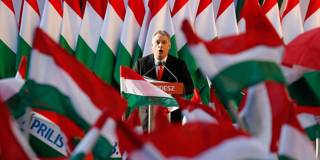Every seven years, the European Union allocates funds to help newer, less economically developed member states catch up to the bloc's richer countries. But now that these funds are being abused by the governments of Poland and Hungary, it is time to ensure that they come with strings attached.
BRUSSELS – Since 2004, when the European Union was enlarged to include many of the former communist states of Central and Eastern Europe, its regional funding mechanism has been heavily geared toward ameliorating economic inequalities between old and “new” member states. To ensure cohesion within the EU, overcoming disparities between countries and improving trade, transport, and communications infrastructure throughout the bloc have long been seen as critical.

BRUSSELS – Since 2004, when the European Union was enlarged to include many of the former communist states of Central and Eastern Europe, its regional funding mechanism has been heavily geared toward ameliorating economic inequalities between old and “new” member states. To ensure cohesion within the EU, overcoming disparities between countries and improving trade, transport, and communications infrastructure throughout the bloc have long been seen as critical.